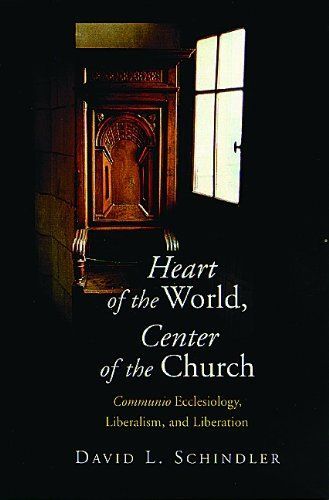
Heart of the World, Center of the Church Communio Ecclesiology, Liberalism, and Liberation
Today, thirty years after the Second Vatican Council, there can be little doubt that the notion of communio ("communion") is at the center of Catholicism's renewed understanding of the Church. In Heart of the World, Center of the Church David L. Schindler shows that communio is also at the heart of the Church's worldly mission. Invoking God's spousal relation to the world, Schindler argues that the Church's answer to the question of worldly freedom is nothing less than its own communio. Yet the claim that the Church promotes the "legitimate autonomy of earthly realities" by penetrating the world with its own intimate reality is hardly a matter of arcane speculation. Heart of the World, Center of the Church develops its thesis in critical dialogue with Western (especially Anglo-American) liberalism, whose ascendancy especially after the events of 1989 poses a host of urgent questions for the Church. Examining liberalism in politics, economics, and the academy, Schindler exposes its inadequate theology of human freedom and "worldly" autonomy, while suggesting how communio both transforms and protects freedom and autonomy in their varied cultural expressions. In the spirit of Pope John Paul II's call for a "new evangelization," Schindler contributes to what the Pope himself has strongly reaffirmed as "the positive value of an authentic theology of integral human liberation" (Centesimus Annus, 26).